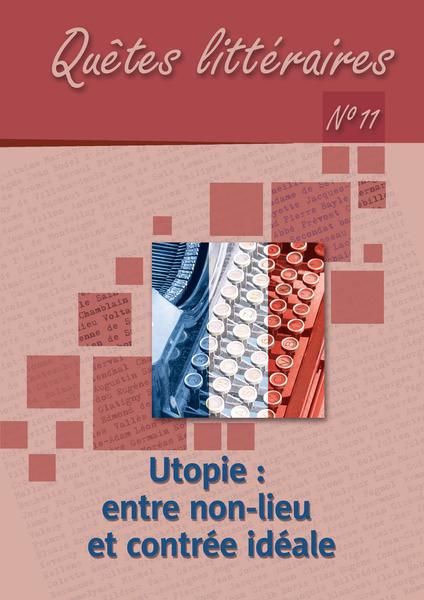Du principe de complémentarité : l’ambiguïté de l’écriture utopique chez Michel Houellebecq
On the principle of complementarity: the ambiguity of Michel Houellebecq's utopian writing
Author(s): Xinyi LiuSubject(s): Politics / Political Sciences, Philosophy, Language and Literature Studies, Literary Texts, Studies of Literature, Comparative Study of Literature, French Literature, Theory of Literature
Published by: Katolicki Uniwersytet Lubelski Jana Pawła II, Instytut Filologii Romańskiej & Wydawnictwo Werset
Keywords: Michel Houellebecq;utopia;principle of complementarity;ambiguity
Summary/Abstract: The principle of complementarity, which comes from quantum physics, is close to the reciprocity between the clinical approach and its dramatic counterpart in Michel Houellebecq’s writing. As for the utopian questioning, this principle can be used as a pivot to study the ambiguity of the author's utopian writing. Taking this physical principle as a starting point, we will first try to analyze the various utopian or dystopian universes in Houellebecq's works, especially through the relationship between the individual and society. Then, by penetrating the Houellebecqian space, we will study the representation of non-places and traditionally utopian spaces in his work, according to the dichotomy between the clinical and dramatic components. Finally, in a narrative sense, we will consider the coexistence of an ideological and utopian narrative in Houellebecq's work, with the boundaries between the author's voice, the narrator's voice and the characters' voice blurred. The sphere of fiction and realism overlap.
Journal: Quêtes littéraires
- Issue Year: 2021
- Issue No: 11
- Page Range: 168-180
- Page Count: 13
- Language: French

